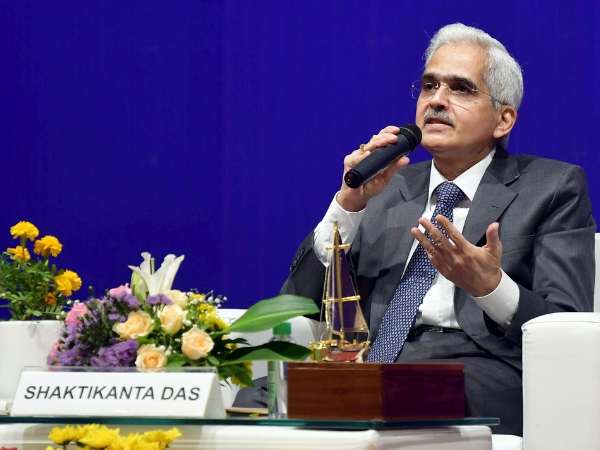- Thursday, February 27, 2025

By: PTI
BIG Tech’s play in lending activities using customer data and sophisticated algorithms can lead to “systemic concerns” like over-leverage and inadequate quality assessment of borrowers, Reserve Bank governor Shaktikanta Das said on Friday (17).
Entry of firms like Google, Amazon and Meta, which are referred to as Big Tech, also poses concerns related to competition, data sharing, data protection and operational resilience of critical services, Das said while addressing the ‘Modern BFSI Summit 2022’ organised by The Financial Express in Mumbai in the western Indian state of Maharashtra.
This is not the first time that the banking regulator has expressed concerns about Big Tech’s foray into financial services. In last year’s Financial Stability Report, it had raised some broad concerns, including about such companies’ products accepting deposits for some regulated financial sector entities. Das said Big Tech players are present in the banking sector either by themselves or through tie-ups with banks or non-bank lenders.
Citing the case of lending, he said they offer sophisticated services which use data from various sources to issue loans to users, including those not having collateral or credit history and added that lenders are using the platforms provided by fintech companies. “Such large scale use of new methodologies in credit assessment can create systemic concerns like over-leverage, inadequate quality assessment and similar other risks,” he said, adding that authorities and regulators have to strike a fine balance between enabling innovation and preventing systemic risks.
“The Big Techs also pose concerns related to competition, data protection, data sharing and operational resilience of critical services in situations where banks and NBFCs utilise their services. These concerns can also materialise in sectors other than financial services,” the governor said.
Lending through digital channels, including mobile apps, has brought in issues relating to unfair practices, data privacy, documentation, transparency, and breach of licensing conditions, Das said. To tackle such instances, the RBI will soon be issuing guidelines to make digital lending ecosystems “safe and sound while enhancing customer protection and encouraging innovation”, he said.
Making it clear that the risks which are emanating can be wide enough to encompass overall financial or market stability, Das said there can be various ways of regulating the fintechs based on activities they do, or entity-based and outcome-based regulation. The fintechs’ play also requires multiple regulators to work together because a single technology like blockchain or de-centralised finance (DeFi) can have multiple uses coming under different watchdogs’ ambit, he said.
“DeFi poses unique challenges to regulators as it is anonymous. The lack of a centralised governance body and legal uncertainties can make the traditional approach to regulation somewhat ineffective.
“There is therefore a case for a globally coordinated regulatory approach and inter-regulatory coordination to enable comprehensive assessment of such activities, activities and mitigation of risks,” the governor said.
He also spoke about artificial intelligence and machine learning being used to determine creditworthiness of a borrower, and flagged risks relating to cybersecurity, software development limitations in transaction capacity, privacy of customer data and data security. The methodology of algorithms underpinning digital financial services has to be “clear, transparent, explainable and free from exclusionary biases”, he pointed out.
In the age of technological changes, the governor also asked the banks to be geared up and adopt more technology, suggesting that banks should not just work like banking service firms but like technology companies. Das also said deploying harsh recovery methods like calling up borrowers at odd hours or using foul language is “unacceptable” and assured that the RBI is paying “serious attention” to such happenings to ensure necessary action is taken to curb such activities.
He said most of such instances are reported from unregulated entities, but added that the central bank has also come across such tactics being used by entities regulated by RBI, and urged all players to give special attention to the same. The comments come at a time when there have been reports of suicides by many borrowers triggered by harsh recovery practices by agents.